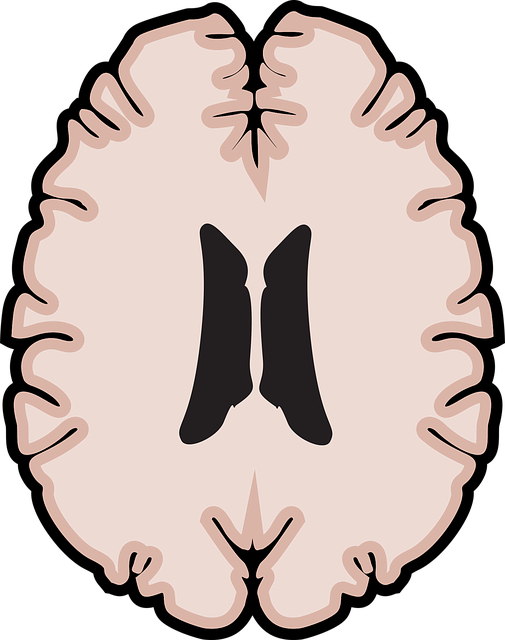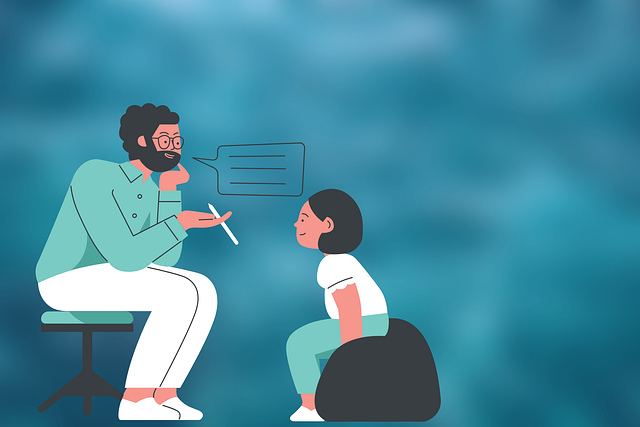Greenwood Village Learning Disability Therapy prioritizes cultural sensitivity in mental healthcare, addressing unique challenges in diverse communities. Therapists navigate language and bias through continuous professional development, ensuring personalized strategies like Mental Wellness Journaling for inclusive care. By valuing diverse beliefs and practices, they foster trust, improve assessment accuracy, and develop tailored treatment plans that reduce anxiety and promote holistic well-being. This culturally competent approach expands access to mental health services for underrepresented groups, empowering individuals with enhanced coping strategies and increased self-esteem.
In today’s diverse society, cultural sensitivity is paramount in mental healthcare. The article explores this crucial aspect, focusing on Greenwood Village Learning Disability Therapy as a model for cross-cultural practice. We delve into the understanding of cultural sensitivity, challenges faced in therapy sessions with diverse clients, and strategies employed by professionals to enhance cultural competence. By examining these aspects, we highlight the benefits and positive outcomes of culturally sensitive approaches, offering insights into improved patient care and community engagement.
- Understanding Cultural Sensitivity in Mental Healthcare
- Challenges and Barriers in Cross-Cultural Therapy
- Strategies for Cultivating Cultural Competence in Greenwood Village Learning Disability Therapy
- Benefits and Outcomes of Culturally Sensitive Practice
Understanding Cultural Sensitivity in Mental Healthcare

In the realm of mental healthcare, cultural sensitivity is a vital aspect that ensures inclusive and effective treatment for all individuals, regardless of their ethnic or cultural background. It involves recognizing and appreciating the diverse ways people from different cultures perceive and express mental health issues, as well as understanding the unique barriers they may face when seeking help. At Greenwood Village Learning Disability Therapy, we prioritize this approach to foster a supportive environment where everyone feels heard and respected.
Cultural sensitivity equips mental healthcare practitioners with the necessary skills for effective communication and tailored guidance, such as incorporating Mental Wellness Journaling Exercise and Communication Strategies. By doing so, therapists can address specific cultural needs, alleviate anxiety, and ultimately provide Anxiety Relief while respecting individuals’ inherent worth and identity. This personalized care ensures that mental health services are accessible and beneficial to all communities, fostering a more inclusive and holistic approach to well-being.
Challenges and Barriers in Cross-Cultural Therapy

Navigating cross-cultural therapy can pose significant challenges for mental healthcare professionals, especially in diverse communities like Greenwood Village, where learning disability therapy is in high demand. One major barrier is the potential language and cultural differences between therapists and clients, which may hinder effective communication and understanding. Accurate interpretation services are crucial but not always readily available, leaving room for miscommunication or misinterpretation of nuanced emotional expressions and behaviors.
Moreover, therapists must be mindful of unconscious biases and stereotypes that could impact their interactions with clients from different ethnic backgrounds. These biases might influence the therapeutic process, leading to inappropriate treatment approaches or assumptions about a client’s condition. Professional development opportunities focusing on cross-cultural competence, including mindfulness meditation techniques as discussed in our Mental Wellness Podcast Series Production, can help address these challenges. Additionally, regular risk assessments for mental health professionals, as outlined in our Greenwood Village Learning Disability Therapy practices, are essential to identify and mitigate potential risks associated with cultural sensitivity gaps.
Strategies for Cultivating Cultural Competence in Greenwood Village Learning Disability Therapy

In Greenwood Village Learning Disability Therapy, cultivating cultural competence involves a multi-faceted approach to ensure every client receives care that respects and reflects their unique background. Therapists are encouraged to educate themselves about diverse cultural beliefs, values, and practices related to mental health. This includes learning about different expressions of distress and recovery across various cultures. Regular training sessions, workshops, and ongoing professional development programs play a vital role in fostering an environment where therapists can explore these nuances and adapt their practices accordingly.
One effective strategy is integrating mental wellness journaling exercises as a tool for clients to express themselves and for therapists to gain insights into their cultural contexts. Encouraging positive thinking and mood management techniques tailored to individual cultures can significantly enhance therapy outcomes. By incorporating these strategies, Greenwood Village Learning Disability Therapy aims to create a safe, inclusive, and culturally sensitive space where every client feels understood and supported on their journey towards improved mental health.
Benefits and Outcomes of Culturally Sensitive Practice

Incorporating cultural sensitivity into mental healthcare practice brings about numerous benefits and positive outcomes. When therapists and healthcare providers tailor their approach to respect and understand a client’s cultural background, it fosters trust and strengthens the therapeutic alliance. This understanding allows for more accurate assessments and personalized treatment plans, addressing unique challenges and strengths specific to each individual. For instance, at Greenwood Village Learning Disability Therapy, culturally sensitive practices have led to improved engagement with diverse communities, resulting in better access to mental health services for under-represented groups.
Culturally competent care not only enhances the effectiveness of therapy but also contributes to the overall well-being of clients. It enables therapists to explore and address cultural influences on mental health, promoting holistic healing. By recognizing and valuing diverse beliefs, values, and practices, healthcare providers can facilitate emotional healing processes and offer evidence-based interventions that resonate with clients’ life experiences. Moreover, this approach can lead to better coping strategies, improved self-esteem, and reduced symptoms of anxiety and depression. Such positive outcomes are particularly significant in stress reduction methods, as culturally sensitive care empowers individuals to navigate their unique stressors while receiving supportive, respectful therapy.
Incorporating cultural sensitivity into mental healthcare practices, as demonstrated by Greenwood Village Learning Disability Therapy, is not just beneficial but essential. By understanding and navigating cross-cultural therapy challenges, therapists can foster a more inclusive environment. This approach leads to improved outcomes for diverse clients, ensuring that everyone receives the highest quality of care tailored to their unique needs. Cultural competence is a powerful tool that enriches therapeutic relationships and revolutionizes mental healthcare delivery.














